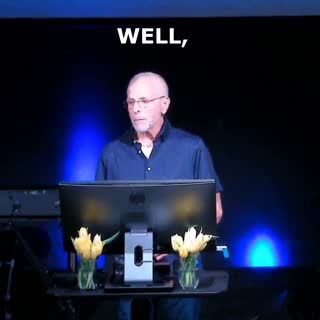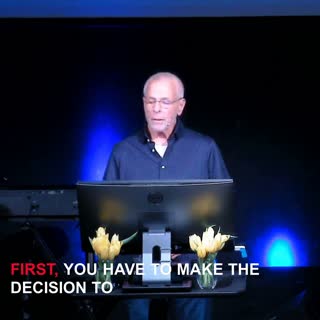Choosing Love and Forgiveness Amidst Hurt
Devotional
Sermon Summary
Bible Study Guide
Sermon Clips
"Sometimes people you love the most will hurt you the deepest. Jesus said in Luke 17:1, he said it is impossible that no offenses should come, but woe to him through whom they do come. At some point, you're going to have conflict with someone that you love, and you're going to have conflict with someone that you deeply, deeply love. And you know that already because it's happened to you. Aren't you glad you came to church today for this uplifting message?" [00:36:51] (32 seconds)
"Well, you and I need to rise up. I believe that God has a special, special thing for his believers to do, and that is to rise up and to love like we've never been hurt. Would you agree with that? Love. Say that again. Love like you've never been hurt. Think of Joseph. You know, his own brothers threw him in a pit to die. And then they just instead of that, they decided to go ahead and sell him and get some money." [00:39:01] (29 seconds)
"Part of Joseph's dialogue with his brothers included this, one of the oldest quoted verses in the Bible, Genesis 50, and you know this. But as for you, he's talking to his brothers, but as for you, you meant evil against me, but God meant it for good. In order to bring it about as it is in this day, to save many people alive. But as for you, you meant evil against me, but God meant it for good. Amen? That's what Satan does, that's what his brothers did." [00:41:04] (35 seconds)
"You and I have to decide that we are not going to get bitter. We are not going to get angry when someone hurts us deeply. Doesn't matter what you do to me, I'm going to love you like I've never been hurt before. Job, he lost ten children in one day. In fact, he lost everything he had in one day. His wife said, kill yourself." [00:42:41] (24 seconds)
"Forgiveness is a choice and loving like you've never been hurt is a choice. You know the body of Christ is full of parents who are estranged from their own children. I've heard this many times: hey Carl, I haven't spoken to my child in a year. You know, I just, I just don't get along with them or this: we live in the same city and I have yet to see my grandchild who was born six months ago." [00:45:44] (27 seconds)
"Nitroglycerin has two uses. We know what nitroglycerin is, right? Nitroglycerin has two uses. It blows up things, and if you put it under your tongue, it'll calm your heart. So nitroglycerin blows up bridges, and calms your heart. Did you know that your words and my words are like nitroglycerin? When they come flying out of our mouth, they can blow relationships up, or they can calm relationships down." [00:48:50] (34 seconds)
"First, you have to make the decision to forgive, right? And then you have to allow it to happen slowly. And I brought something for you. Just a little visual. And before service, before service, my plan was to have a bottle of ketchup. So my illustration was completely messed up about an hour ago. There is no such thing as Heinz ketchup in a bottle anymore. Found that out. Anyway, so I got Heinz ketchup in a squeeze bottle." [00:51:40] (38 seconds)
"If you have scars in your life from hurt, there's no reason to be scared. Scared of them, and there's no reason to be ashamed of them. Because scars show, it's like a testimony of God's ability to heal hurts. If you've got scars, then you know for a fact that God has healed that hurt. And they're also proof that the enemy tried as hard as he could to destroy you, but God won out, and God won the victory, and that's why you have a scar, because God won." [00:55:27] (32 seconds)
"Jesus loved like he'd never been hurt. Jesus loves like he's never been hurt. He loves us like we've never hurt him. He loves us like we've never failed. Jesus loves us like we've never lied to him. He loves us even with bad motives. Jesus loves us like he's never been hurt. And you know, on the cross, Jesus is love. It wasn't cautious, was it? His love was extravagant." [00:57:14] (41 seconds)
"Father, we just give these people to you right now. Lord, help us to forgive. Help us to make the choice to forgive. Help us, Lord, to make the choice to love like we've never been hurt. If you're here today and you don't know Jesus as your Savior, today you have a chance to do that." [01:00:32] (22 seconds)




















